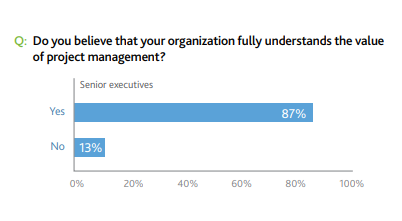The bioscience industry is reacting to the need for more efficient delivery, and the incredible strain from the pandemic, with new service models, facilities and technologies. The weight of responsibility has landed on the backs of one particular group of individuals:
Project Managers (PMs).

Regulatory pressures and the duration of development cycles, compounded by uncertainties inherent in scientific research, makes managing bioscience projects challenging.
In the pharmaceutical sector, pre-clinical and clinical tests alone can reach 133.7 months before completion. There are so many phases where something can go wrong. In fact a staggering 70% of organisations suffered at least one project failure in the last 18 months.
Typically these issues manifest as planning problems, development delays, unforeseen activities and cost overruns. You’ll most likely have run into these common causes of project failure during a project:
- Change in your organisation’s priorities (39%)
- Change in your project objectives (37%)
- Inaccuracy in what your project needs to be completed (35%)
- Poor project vision (29%)
- Poor communication (29%)
Often these failures are linked to poor project management, from schedule delays to budget overruns.
Many organisations attempt to mitigate this by transplanting former academic scientists into project management roles. But is this where their focus should be?
Why you need skilled project managers
One question being faced in this sector is, “Should bioscience PMs be more technical or business savvy, more scientists or managers?” A lot of us answer, “Yes, to all of the above.”
Successful project delivery requires skills in three key areas, gained through professional management training. These are:
- technical (development and management techniques)
- individual (leadership, scope management, communication)
- stakeholder (user involvement, executive buy-in, goal specificity).
Most senior executives understand the need for PMs (87%), yet only 43% consider it highly important to develop the necessary business skills for project management.
There appears to be a belief that in today’s faster-paced drug-development environment, you may not need what might be considered “professional” project managers to succeed. Understandable objections like “We have functional leads that can do it” come to mind.
Well-defined professional project managers do exist in our industry. But your functional leads are scientists first, used to thinking about the process over end goals. Focusing on methodologies may lead to your teams being concerned with how the job is done, not about managing the route to the outcome. A trained PM’s ability to step back and see the bigger picture helps you deliver your solutions, services and products better.

Keep yourself honest
Ours is a highly scientific and technical industry, and PMs benefit from a foundation of scientific understanding and applied critical thinking. But you wouldn’t expect your medicinal chemist not to have basic skills. How is it then that we don’t expect our project managers to have a set of basic skills?
Of course, every researcher will bring some project management skills to the table. But in transitioning from research to management, you go from the expert back to a novice.
Therefore, you might find it helpful to ask yourself some questions about your team’s potential PM capabilities. Answering honestly:
- Can you change your mindset from thinking like a scientist to thinking like a manager? With a finger on the pulse and eyes on the bigger picture?
- Can you define project scope, liaise with your stakeholders and make timelines to work towards successfully executing a project?
- Can you stick to the project scope, modify it depending on circumstances, and still keep the specific end goal in mind?
Often business-oriented skills are not at the forefront of scientific training. But, negotiating skills and the ability to resolve conflict and communicate effectively are critical in PMs.
The initial ban on genome editing in agriculture in 2018, for example, meant GMO regulations forced small and medium enterprises to consider project viability amid increasing costs. On-going genome editing projects required rapid modification to ensure end products met regulations, which is incredibly difficult without the necessary training to manage and remain ‘on-plan’.
Training in the business side of science is critical to navigating stakeholder buy-in and shifting project priorities when faced with such momentous changes, and yet is alarmingly overlooked.
Qualified PMs are the cure
Project managers with the most business-related training are rated the best at managing projects. Awareness of these skills will allow our industry to distinguish between the least and most impactful performers. Then, career development programs for mastering those skills can be put in place.
Until the Bioscience industry focuses on structured training and development within the promotional system, outsourcing specialised project managers is your best hope of delivering on time, on budget and to your exact specifications.
At Biomatics, our clients recognise that project management is not a skill set that they can always meet from their resources, so turn to us to fill the gap.
If you have any questions or want to learn more about our services, get in touch with our team today.


